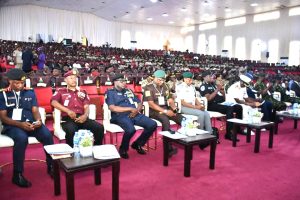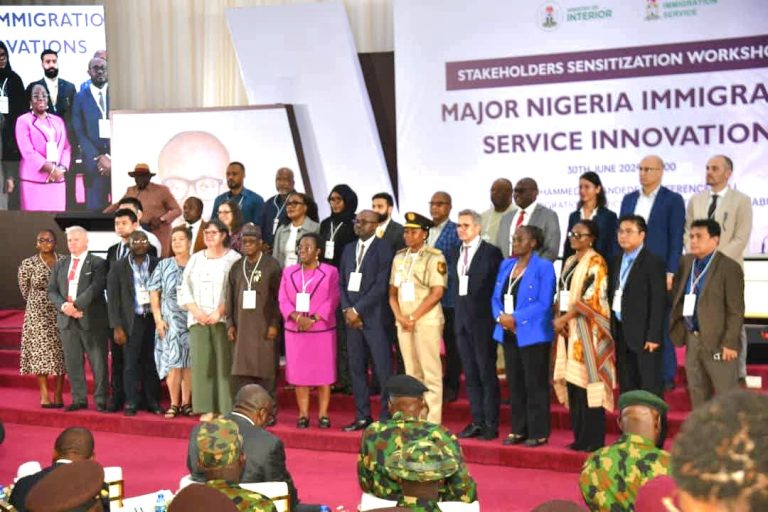By Ibironke Ariyo
The Minister of Interior, Dr. Olubunmi Tunji-Ojo, has affirmed that the recently introduced electronic visa (e-Visa) has been a resounding success, with over 14,000 applications processed in the first six weeks.
Tunji-Ojo made this announcement during a workshop on key innovations organized by the Nigerian Immigration Service (NIS) in Abuja on Monday.
The News Agency of Nigeria (NAN) reports that the electronic visa introduced by the Federal Government came into effect on Thursday, May 1, 2025.
He also announced that the Combined Resident Permit and Expatriate Card (e-CERPAC) and the electronic Temporary Work Permit (TWP) will come into effect next week.
However, he emphasized the effectiveness of the new system: “I can tell you that in the first six weeks following the introduction of the e-visa, we processed over 14,000 visa applications.
That was done in six weeks. So, on an international scale, it’s a considerable achievement.”
This is a major problem, and I assure you that these minor inconveniences will be a thing of the past within a week or two. We will correct them, and we are already working on it.
Just yesterday, the Comptroller General of the National Investment Service (NIS), Kemi Nandap, was at my house. The technology partners were also there. The Deputy Comptroller General (DCG) for visas was also there.
We all worked for hours yesterday, Sunday, at my house, including in the conference room.
We worked because we know that in the innovation process, there is no time to waste.
“We have to make sure this works. “We are ready to take on the challenge.”
The Minister of Interior explained that the e-visa system was implemented not only to control migration, but also as a catalyst for economic growth.
“If someone needs a visa for Nigeria and is only looking for someone who knows the minister, the secretary general of immigration, or the permanent secretary, in my opinion, that is not the best way to develop a country.”
“And that’s the truth. We have to act simply, without compromising national security. That’s the right strategy.” “The e-visa, I assure you, already exists, and thank God, it’s here to stay,” he said.
Tunji-Ojo emphasized, however, that the e-border solution had significantly strengthened Nigeria’s border security.
According to him, we are not yet where we want to be, but we are also not where we were.
“Progress has been made, and we will continue to invest in the management of our e-border systems and deploy more personnel on the ground to ensure the full protection of every square inch of Nigeria’s border area,” he promised.
Regarding the future of e-CERPAC and the TWP, the Minister stated his intention to end past abuses of the TWP system.
He stated, “There is no longer a need to access the TWP almost free of charge and constantly renew it to circumvent the law.”
“Therefore, for us, the TWP is automated, just as CERPAC already is,” he emphasized.
The Minister of Interior added that the elimination of the manual entry process in the passport application process has saved Nigeria approximately one billion naira annually since the end of the corresponding contract.
In her welcome address, the Director General of the National Information Service (NIS), Ms. Kemi Nandap, highlighted the service’s recent digital innovations.

Ms. Nandap explained that the new visa regime has introduced several innovative services, such as the electronic visa application channel, e-CERPAC, landing and departure cards, and the temporary work permit.
The e-gates already installed at our major airports and the contracted screening center are ready to integrate and utilize these technologies.
“These digital solutions leverage technology to streamline processes, improve security, and optimize the overall experience for travelers and stakeholders,” she explained.
Ms. Nandap stated that the e-visa system simplifies online applications, eliminating the need to visit immigration in person.
She added that e-CERPAC has integrated residence permits into a digital document, simplifying the process for foreigners residing in Nigeria.
“Our temporary work permit processing has also been improved and digitized, reducing processing times and increasing efficiency.



